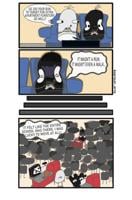During my first week at NC State, I was given a tour of the library where I was shown the Digital Media Lab. As a journalist, podcast content creator and former musician, I have a special interest in the media industry and the equipment available in the Digital Media Lab felt like a dream come true.
However, I was surprised to learn that most students not only don’t know about the specific resources the Digital Media Lab offers, but they don’t know it exists at all.
Konde Brown, a fourth-year studying communications and Digital Media Lab employee, shared their observations on the lab’s lack of exposure.
“I’ve had a lot of people poking their heads in and asking: ‘What’s this?’ And when I tell them about it, they immediately want to get started,” Brown said. “But it’s kind of out of the way at D.H. Hill, and it’s kind of out of the way at Hunt Library as well.”
It seems the University isn’t doing a good job of making information about the resources and equipment the Digital Media Lab offers known to all students.
Even those students who know of the lab might not be aware of the numerous different parts of media-making they can engage in. The music booths, for example, can be used for a variety of different artistic endeavors — for class projects as well as for experimental purposes.
“This summer, the shifts were pretty slow,” Brown said. “So, in my boredom, I would go in and teach myself piano.”
Whether or not you are planning on pursuing a media-related career, the free tools and resources offered by the Digital Media Lab represent amazing opportunities to be creative.
So why don’t more students take advantage of this unique offer?
Jason Evans Groth, digital media librarian for the Learning Spaces and Services Department, shared his thoughts on why students might be reluctant to engage in media-making.
“Even if music is what drives them, they feel like they need to focus only on the things that are going to make them marketable,” Groth said. “And they are given all this conflicting information about whether or not it could be a legitimate way to spend your time.”
Perceptions of a career in the arts industry are still mainly negative in the sense that people don’t believe it’s a financially rewarding profession. We tend to view making music, and art in general, as a hobby rather than actual work that requires effort.
“My parents used to think I was on vacation all the time,” Groth said. “Even though the job of a professional musician involves a lot of practice, long hours and hard work.”
Mallory Williams, a music business student at Belmont University, brought to my attention the numerous jobs this industry has to offer.
“The music business industry has the same things that a normal business would have like advertising, entertainment lawyers and artist managers,” Williams said. “It’s like managing a company and your product is an artist.”
It’s true the music and arts industry is volatile and requires unconventional and adaptable business models. A music business degree will focus on providing you with knowledge about the industry while also teaching about all the other basic aspects every business-related university program teaches, like financial accounting and marketing methods.
Making money and making music aren’t mutually exclusive but can complement each other.
“You don’t have to be a singer-songwriter to be labeled an artist,” Williams said. “There are a lot of different ways you can use your skills to the best of your ability.”
Besides business, there are also other parts of the music industry you can work in if you are, for example, pursuing an engineering degree. You can work as an audio engineer if you have an ear for sound and are interested in the technical side of music production.
Even if you don’t want to pursue a career in the arts industry, being creative and open to exploring your artistic side can help you do better work in general.
“Sometimes when I’m at work and can’t quite understand a problem, staring at a screen isn’t going to help, but letting my brain work in a different way by doing something creative might just let the answers come up,” Groth said.
Degree-seekers from programs like business and engineering can use gear from the Digital Media Lab to become more well-rounded with a variety of different interests and skills.
I have come to appreciate the Digital Media Lab as a place to merge my professional and creative lives. Whether you want to become a professional artist or you just want to have a place to experiment, the doors of the Digital Media Lab are wide open to you.
For more information on the resources and equipment the Digital Media Lab offers, you can visit its homepage or drop by D.H. Hill Jr. Library from Monday to Friday, 10 a.m. to 8 p.m. or Sunday from noon to 8 p.m.




(0) comments
Welcome to the discussion.
Log In
Keep it Clean. Please avoid obscene, vulgar, lewd, racist or sexually-oriented language.
PLEASE TURN OFF YOUR CAPS LOCK.
Don't Threaten. Threats of harming another person will not be tolerated.
Be Truthful. Don't knowingly lie about anyone or anything.
Be Nice. No racism, sexism or any sort of -ism that is degrading to another person.
Be Proactive. Use the 'Report' link on each comment to let us know of abusive posts.
Share with Us. We'd love to hear eyewitness accounts, the history behind an article.